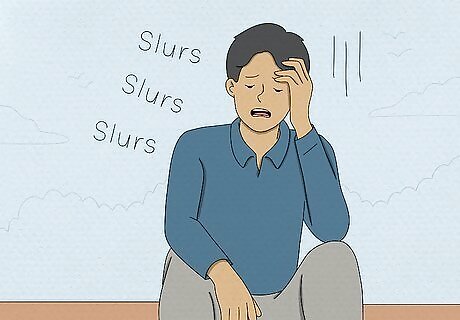
views
Is hell a curse word?

Hell is a swear word when used in anger or for emphasis. Unless you’re talking about hell in a religious context, it’s considered a curse word in the English language. Examples of cursing include, "Go to hell!" and "For hell's sake!" Hell can also be used in a casual, conversational way, but it's still considered a swear word in those instances. Someone might say, "Hell if I know" or "It was a hell of a party!"

Hell is a “mild expletive.” That means many people think it’s pretty tame, as far as swear words go. It’s about equal to the word “damn” in terms of offensiveness. A person’s perception of how rude it is often depends on their religious beliefs. Someone who isn't particularly religious may not be bothered by it, while someone who is religious may be offended when you say the word hell. When hell is used as a swear word, it falls under the “blasphemy” category of curse words. Since it refers to a religious topic in a disrespectful way, some religious people feel that it’s a very ugly swear word.
When Hell Isn’t a Swear Word

Hell isn’t considered a curse word when used in a religious context. In many faiths, hell is defined as a bad place where sinners go to be punished, but the word itself isn’t bad to use in religious discussions. So if you’re reading aloud from the Bible, there’s no need to skip over the word.
Will I get in trouble for saying hell?

Saying hell isn’t appropriate in some public and group settings. In most schools, businesses, and professional settings, saying hell could get you in trouble. It’s considered rude and unprofessional. Saying hell may be overlooked in some places (such as in a football stadium), while it would cause a scene in others (such as a bank). When it comes to swearing, location matters! When in doubt, avoid saying hell in public places.

If you say hell, you might upset people around you. Unless you’re very familiar with them and you’re sure they won’t be bothered by swearing, it’s best to choose other words so you don’t cause any trouble. If you’re using the word hell in a joking manner, you risk sending the wrong message and seeming inconsiderate of others. Use “heck” as an inoffensive alternative to saying hell.

It’s legal to say hell in the United States. From a legal standpoint, your right to say “go to hell” is protected under the First Amendment.

You can say hell on YouTube. In 2019, YouTube clarified that creators can say hell as often as they want. Saying hell won’t affect your ability to monetize your videos with ads on YouTube.
Ways to Use Hell as a Curse Word

“What the hell?” This is another way of saying, “What on earth?” It expresses confusion and frustration over an unexpected event. Or, if it’s said with a shrug, it can mean, “Oh, why not? Let’s do it.”

“Give ‘em hell!” This is a phrase of encouragement, similar to, “Go get ‘em, Tiger!” It’s used to wish someone luck.

“Hell, I give up.” When used as an interjection, hell is used to express strong emotion.

“It was funny as hell!” In this case, hell adds emphasis so the statement packs a bigger punch.
Is swearing bad?

Some religions teach that cursing is morally wrong. The Bible has verses warning people not to use blasphemy or filthy words. Islam also teaches that cussing and using foul language is a sin.

Swearing is a normal part of language learning. Linguistic (language) experts say a child usually utters their first bad word by age 2, and they develop an adult-like curse word vocabulary by age 12. People use curse words around the globe. The words that are considered “bad” vary according to cultural taboos. In Turkey, cursing someone’s ancestors is extremely offensive!

There’s no proof that exposure to standard curse words is harmful. Researchers found that swearing won’t cause emotional issues, raise aggression levels, or stunt your vocabulary. However, slurs (insulting language that targets demographic groups) are not harmless. Studies show that hearing slurs can cultivate prejudice. Exposure to slurs is also linked to an increase in depression and anxiety. Slurs are extremely offensive and should not be used.
Are there any benefits to swearing?

Cursing lessens sensitivity to physical pain. Studies show that when you swear out loud, you can tolerate pain more easily. Who would have guessed that four little letters could make you feel so good? The hypothesis behind the science? Swearing creates a fight-or-flight response, overriding your ability to perceive pain.

Swearing improves physical performance. Studies have shown increased strength and endurance in participants who swore while working out. Researchers aren’t sure why cussing can help you do more push-ups, but it might be worth trying during your next training session. Then again, maybe you should save the swearing for your home gym.

Cussing relieves stress. It’s a way of blowing off steam when you’re upset. Swearing provides an emotional release without any physical aggression. Seems like the Hulk might want to rethink his anti-swearing stance!

Swearing with friends is a bonding experience. Cursing can serve a social function as a shared language and a signal that you belong in the group. Studies show that people swear more often when they’re relaxed and with their peers. What’s more fun than breaking taboos with your buddies?



















Comments
0 comment